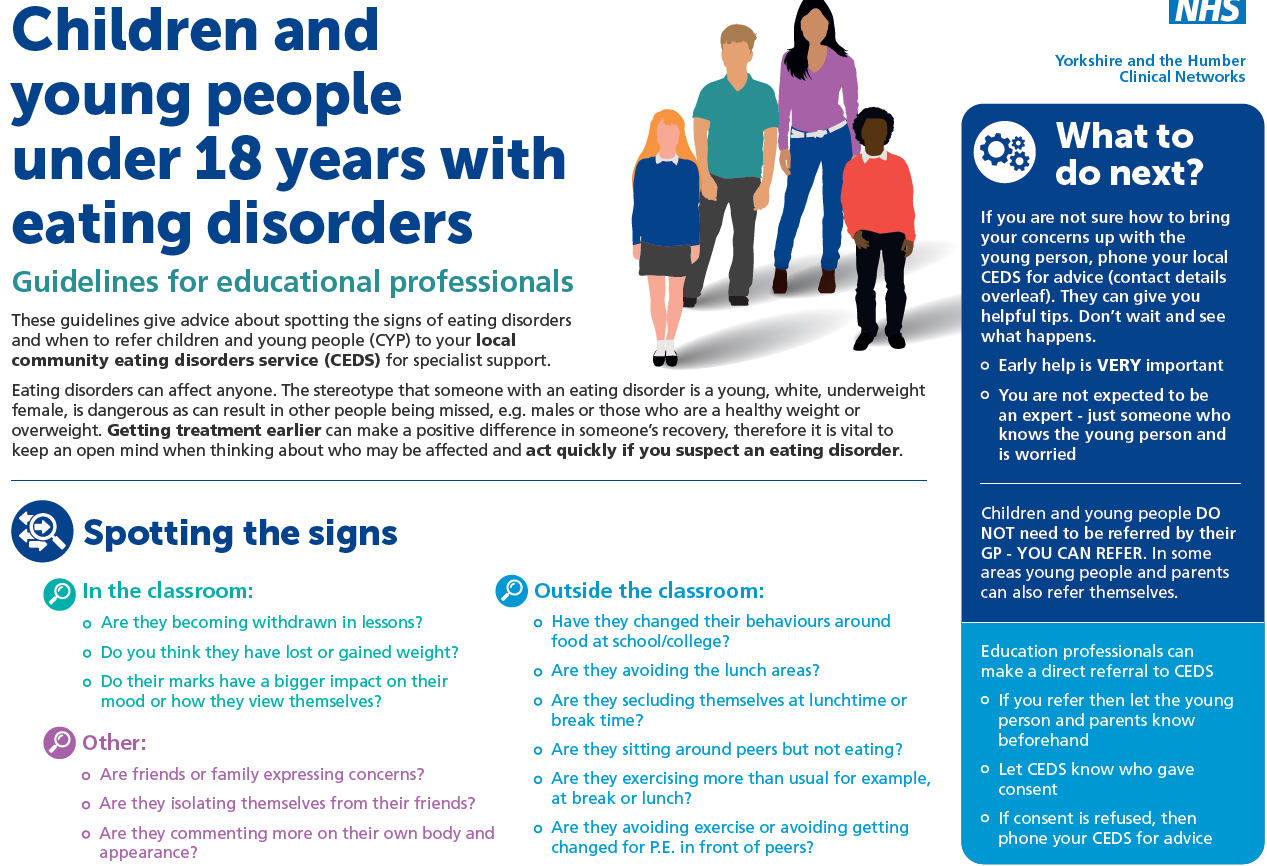Eating Disorders
PEACE is a Pathway for Eating disorders and Autism developed from Clinical Experience. Our research suggests that around 35% of people experiencing an eating disorder may may have autism spectrum condition (ASC), or present with high levels of autistic traits. We hope this pathway will support autistic people suffering with an eating disorder, their loved ones and their clinicians.
The ARFID parent/carer leaflet has simple tips about safe foods, sensory needs, and taking a no pressure approach to eating. Find this leaflet and other useful resources at the bottom of Yorkshire and the Humber Clinical Networks | Children and Young People’s Eating Disorders (CYP ED) (yhscn.nhs.uk).
Peer support and other useful links:
Telling people you have an eating disorder, getting help and more. Get help for myself – Beat (beateatingdisorders.org.uk).
View more downloadable resources and flyers for people with eating disorders, those wanting to support them, and professionals. Downloads and Resources – Beat (beateatingdisorders.org.uk).
If you or someone you care about is suffering from an eating disorder the best way forward is to get help and support as early as possible.
If you are 17.5 to 25 years old, and have been living with an eating disorder for three years or less, then you may be eligible to access support through FREED.
Visit your local site. FREED :: NAViGO (rharianfields.co.uk).
Rapid Early intervention for Eating Disorders (FREED) is an evidence-based early intervention model for eating disorders, tailored to young people’s needs. More about FREED, NAViGO is part of the FREED network.
Professionals
There is information for educational professionals. Learn what signs should you be aware of and what you can do next.
Worried about a pupil – Beat (beateatingdisorders.org.uk)


